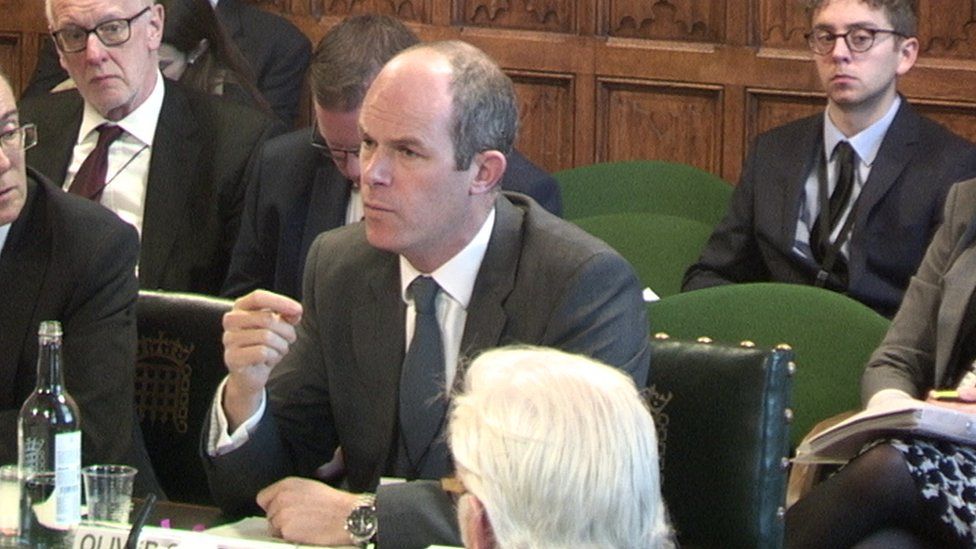Brexit: UK ready to 'buy in' trade experts
- Published

Officials said their department had grown in size in recent months
The UK is retraining civil servants as post-Brexit trade negotiators but is also set to "buy in" expertise from outside, a top official has told MPs.
The UK's capacity to negotiate trade deals with other countries after Brexit has been queried, with up to 100 staff needed alone for a single agreement.
Oliver Griffiths said negotiators were not "mythical creatures" and current staff had many of the skills required.
But he said the civil service would need to recruit "across the piece".
Whitehall is expected to have to recruit thousands - as many as 30,000 according to a recent internal Deloitte's assessment - of civil servants to deal with the challenge of extricating the UK from the EU after June's referendum vote.
There are particular concerns about a shortage of trade negotiators, given that many of the UK's most experienced professionals in this field are currently working for the EU - which arranges trade deals for all member states including the UK - and are not guaranteed to return.
'Experienced core'
Giving evidence to MPs on the international trade select committee, senior officials said they were "ramping up" their operations in light of the Brexit vote - with the new international trade department led by Liam Fox now employing 2,700 staff.
Mr Griffiths, the department's director of trade policy capability, said the UK had 45 trade policy experts at the time of the referendum vote and this number was now "100 up on that".
The UK cannot negotiate any third party trade deals until it leaves the EU
"We start from a core that was strong on trade policy... albeit that being a support position for the European Commission," he said.
Although there was more to trade policy than negotiating bilateral agreements, Mr Norton acknowledged that reaching deals with countries outside the EU after Brexit would draw heavily on the department's resources in the coming years.
"A free trade agreement is typically 20 to 30 chapters, covering a particular area like agriculture or services," he explained. "You would tend to have an individual that is leading at that chapter level - a specialist that understands that policy area very well.
"You will then have a level of deputies that will provide the co-ordination and oversight of the text that is being produced and then you will have a chief negotiator that sits at the top. It is a pyramid structure and you can imagine a free trade agreement team being 50 to 100 people."
'Mythical creature'
As it looked to supplement its already "experienced" team, Mr Griffiths said the civil service's "strong preference" was to recruit internally - meaning training existing civil servants rather than recruiting negotiators from other countries.
But he added: "We have an important decision to make which is effectively do we buy or build. The focus of our recruitment to date has almost exclusively been from Whitehall. But what that puts is a huge weight in terms of up-skilling and training.
"We have a trade faculty that has been set up by the Foreign Office that is going to be playing a huge role."
Asked by SNP MP Angus MacNeil, who chairs the committee, whether the UK was simply replacing an experienced Brussels-based bureaucracy with a less experienced London-based one, Mr Griffiths said there was a danger trade negotiators were being seen as "mythical creatures".
To be a negotiator, he said, people had to understand the policy areas at stake and to have the experience and skills to "carry out a negotiation in a very complex multi-stakeholder environment".
"We have done a lot of the latter in the civil service in the past but I think it would be a mistake to just look at the civil service," he added.
"As we move into that open and detailed negotiation phase, we will certainly be looking to have posts that are open to the best and brightest in both the public and private sectors."
- Published29 November 2016
- Published15 July 2016